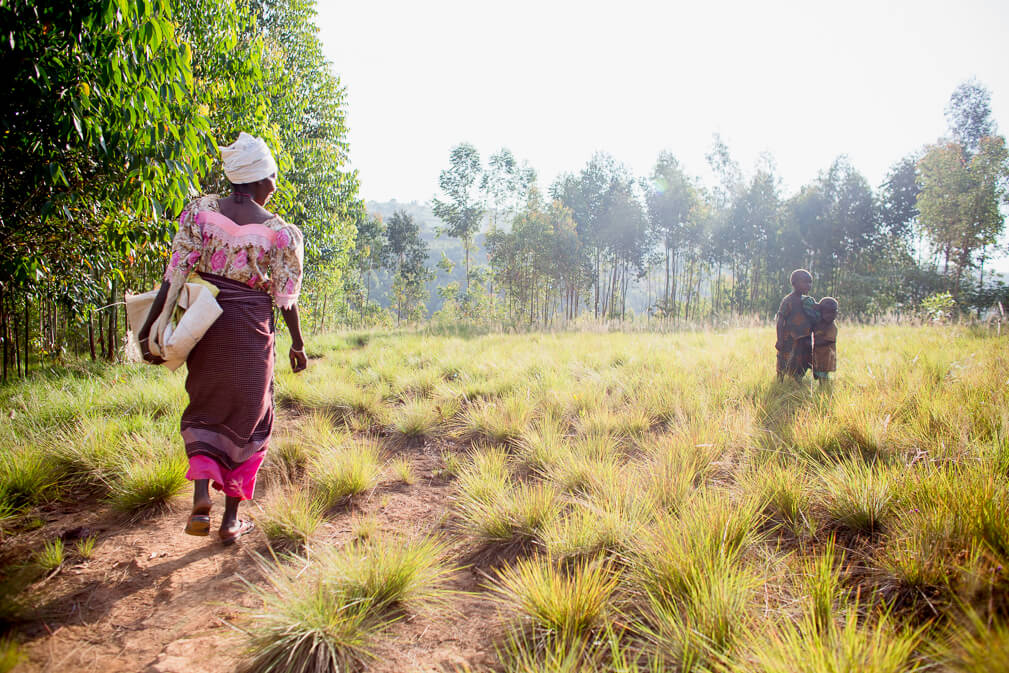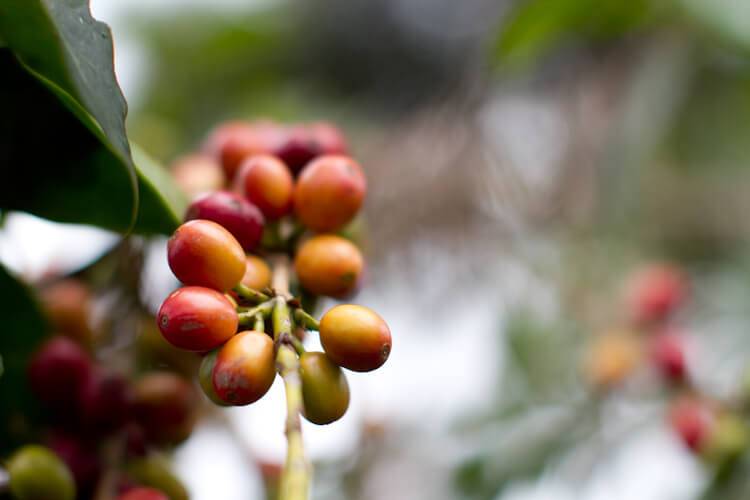
We can’t help but think of COVID-19. It’s a very real part of everyday life that has affected everything, from how we operate as a team to how we’re producing coffee. As we opened our coffee harvest season and began to operate our washing stations, we had to think about how to go about producing coffee in a new way. How could we continue to produce coffee without putting people’s lives at risk? In Burundi, social distancing isn’t enforced and up until now, hasn’t officially been encouraged.
Thinking through how we can keep everyone safe is a big part of how we’re producing coffee this year. The main concern is for coffee farmers. The majority of the farming community are extremely vulnerable and an older population. We’ve had to build protocols for our washing stations and farmers that seem as foreign to our team as they did to us when we first heard them. Do you remember the first time you heard that we needed to socially distance ourselves and stand 6 feet apart? It’s an incredible challenge to tell people to stand apart at the washing stations when hundreds of farmers are delivering their coffee cherries at the same time. Coffee production is about space in so many ways. Usually everyone- from neighboring farmers bringing in coffee cherries to our team at the washing station- stands right on top of each other, selecting and sorting through coffee together. Lifting heavy bags of coffee cherries from one corner of the washing station to another. Producing coffee is a high touch, close proximity job. How do we change that? Culturally, it’s really difficult.
“We’ve had to build protocols for our washing stations and farmers that seem as foreign to our team as they did to us when we first heard them. Do you remember the first time you heard that we needed to socially distance ourselves and stand 6 feet apart?”
With 94 reported cases and 1 recorded death (as of 12 June 2020), COVID-19 is affecting Burundi. But…life has in some ways carried on as per usual, which has left many people feeling confused. There has been no lockdown or shutdown, no limitation on movement or travel within the country. Businesses and individuals alike are trying to follow what the country’s Ministry of Health and government is saying about COVID-19, but the reality is that there is extremely limited testing available and limited ability for the health care sector to handle a respiratory disease like this one.
In other ways, life has been turned on its head. All of the land borders have closed. The airport is shut until further notice- there are no commercial flights coming in or going out. Trading between our neighbors, both close and far, has been affected. No one is telling us, coffee producers, what to do or how to keep our team safe. That’s up to us. We’re having to think through: how do we operate to maintain safety for everyone involved while also respecting what the government is saying? We have to keep healthy as we keep producing coffee. We can’t stop the fact that the cherries are ripening and that harvest is happening. If roasters decide not to buy or roast coffee, we won’t stop producing it.

“No one is telling us, coffee producers, what to do or how to keep people safe. That’s up to us.”
In Burundi, coffee farming is ‘essential work’. Coffee makes up 70% of the country’s foreign exchange earnings. As farmers, it doesn’t matter that there’s a pandemic- you still have to harvest. This is also an election year in Burundi. As a country, we had to be able to stand on our own two feet and pay for the election, which is very costly. There are no fall backs. There is no health care or wealth care solution. Coffee is how most people live, and they can’t go a year without producing it. Burundi is also coming off the backend of the worst coffee harvests in decades. Last year (2019), the country as a whole produced just 20% of its usual coffee crop. We have to produce coffee as a country, as coffee producers, as families and individuals- we can’t afford not to. It will be a challenging year, but our vision to produce quality coffee and care for the farmers who grow it doesn’t change.
“There are no fall backs. There is no health care or wealth care solution. Coffee is how most people live, and they can’t go a year without producing it.”
Normal has gone out the window. Whatever the new normal is, we’ll just have to figure it out as it unfolds. We’ll still be producing coffee. We produced last year, we’ll produce this year, and we’ll be producing next year. We’ll still be planting indigenous trees, endeavoring alongside our neighbors and coffee farming families to renew the health of the soil on their land. Our roasting partners won’t be visiting our part of the world anytime soon. We’re thinking now more than ever: how can we partner with and support our specialty coffee community?
Whether it’s Africa, USA, Europe, Australia, Asia, wherever- we’re all experiencing this. We’re looking forward to figuring things out together, once this does pass. To our friends the world over, we’re with you.
Thank you to our friends at Onyx Coffee for starting this conversation.

